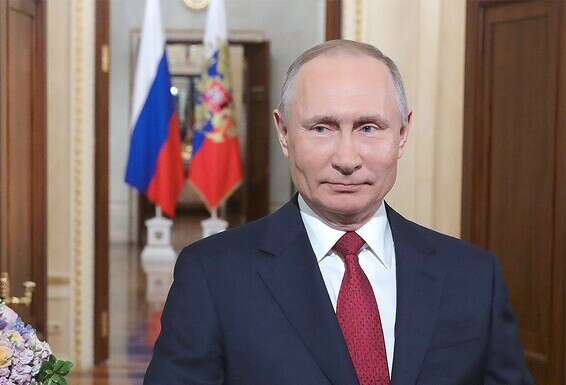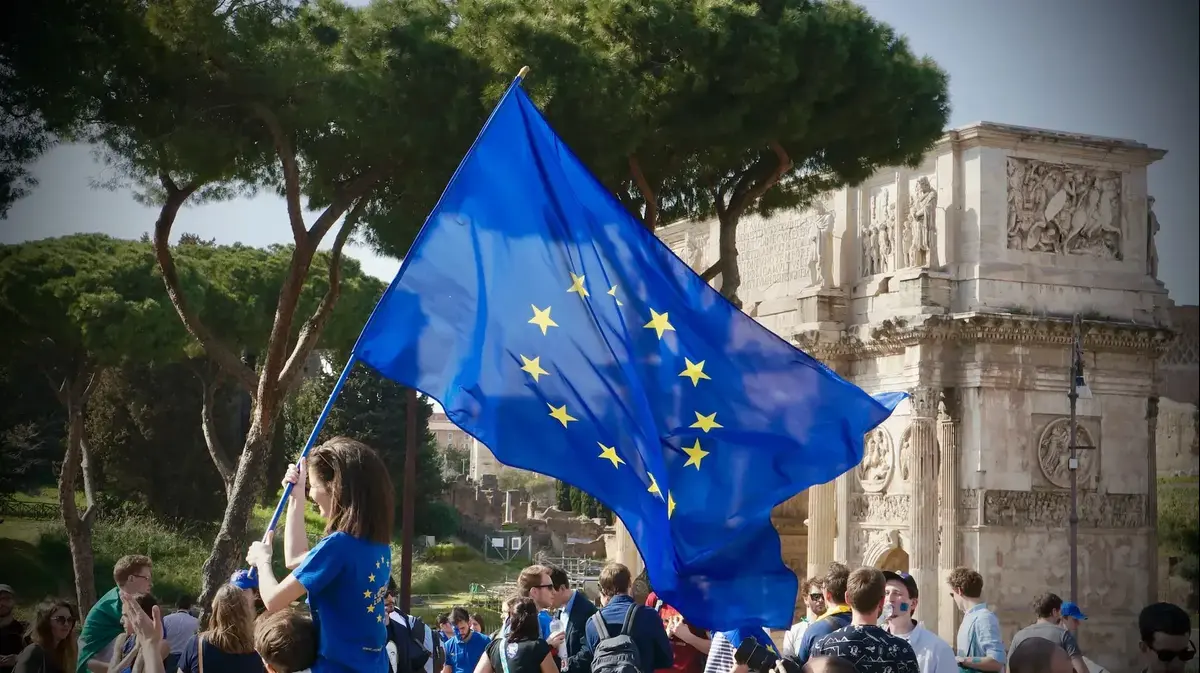The Corona crisis has intensified the new reality of the European Union: the inability to formulate measures that everyone will agree on • As the controversy becomes a permanent and permanent element in the European landscape, it is no wonder that in Italy more and more voices are being heard to continue separately
The aid should alleviate the pain. Disinfect Duomo Square in Milan
Photo:
IPI
An intriguing and symbolic meeting took place in London about two weeks ago. On one side of the table sat British politician Nigel Farage, the Brexit contractor. On the other hand - the Italian senator Gianluigi Paragon, a former journalist who dreams of leading his country on the path outlined by Farage, out of the EU. If anyone else thought the two gentlemen had gathered to discuss their favorite football teams' chances of winning the Champions League, a few days later the official announcement came: Paragon is forming the Italczite party.
Why Italy? Residents of the boot country feel that their union partners have betrayed them twice: in the first weeks of the outbreak of the corona plague, when hospitals and medical systems in northern Italy collapsed from most patients; And again, in recent months, when the extent of the economic damage began to emerge and the need for immediate financial assistance arose. In both cases, say the Italians, EU institutions and its member states have abandoned them.
Not a matter of right and left
Public opinion polls illustrate the major changes and leave no room for doubt as to the changes in the public position. Thus, if one compares the situation today compared to 2002, when the Italians' support for membership in the Union skyrocketed and stood at almost 80%, it is found that this figure has halved. According to another study, 42% of Italians support leaving the union. Even in France, which sees itself, alongside Germany, as one of the two pillars of European integration, only 39% of respondents believe that EU membership has a positive impact on their country. It turns out that dissatisfaction with the "US of Europe" vision has ceased to be marginal.
Moreover, the undermining of trust and the growth of resentment towards the bureaucrats from Brussels has spread to the right and left, and there is nothing like the London meeting to demonstrate this. Unlike Farage, a conservative right-winger, the Italian Paragon comes to the arena from the populist left wing. If we recall the lessons of the Brexit, we will see that the victory of the proponents of leaving the EU would not have been possible if only one political camp had supported it. Corona's affairs have only accelerated the reformatting of the political systems in many of the continent's countries, and this is very bad news for the joint European project.
President Putin // Photo: IPI
Supporters of the union take solace in the fact that the heads of the member states have nevertheless managed to reach an agreement on the package for economic restoration of corona damage. The program, which will cost close to € 2 trillion, will include grants and loans of € 750 billion to EU countries and another multi-year € 1 trillion aid channel. The dish that will arrive in Italy will be the largest of them all.
The news is supposed to alleviate the Italian pain, but even before that happens - if it does - it has caused pain in less-affected countries and not really happy to fund the troubles of others.
The old and the clumsy
The Slovak finance minister, for example, harshly criticized the idea of joint responsibility for debts, describing it as "not far from insane." He did not even bother to hide to whom he meant. "Italy produces the biggest debt and makes the least reforms, so why would you get the most?" theme.
His harsh statement marks the new reality of the European Union and expresses the inability to formulate steps that everyone will agree on. Once these are the value gaps, and once the income gaps - the reasons for internal quarrels can vary, but the controversy is becoming a permanent and permanent element in the European landscape, which has only recently boasted of perfect harmony.
The months of the epidemic only exacerbated the situation by giving them more confidence in the "new European" countries. It is no secret that in the previous two decades the new members of the Union, freshly freed from the shackles of communism located in the east of the continent, had great respect for the countries of Western Europe, and used to be heard. It is unlikely that this imbalance will be maintained, especially in light of the interim consequences of the epidemic, after the weakness of "old Europe" was exposed to the eyes of all. After all, it is the old, powerful and rich countries (France, Italy, Belgium, Spain) that have been hit the hardest and have discovered their helplessness, at a time when Eastern European countries have faced the challenge well - both in health and economics.
The highest damage to GNP, for example, was recorded in the second quarter of the year in Spain, Portugal and France, and the smallest in Lithuania (three times smaller than in Spain). so, why do they cancel themselves Hereafter front views of Paris, Berlin or Brussels?
dynamic friction in the European Union is embodied by the relationship murky between the institutions and the Hungarian Prime Minister Viktor Orban. special laws received from Hungary at the beginning of the crisis corona - such as the introduction of a state of emergency indefinite And the authority of the executive branch to issue orders for the protection of public health, while weakening oversight by parliament - have been criticized by the union.
"Do not fully reconcile with European values," they called them in a European Parliament decision, seeking to impose sanctions on Hungary.
Several months passed, and it became clear that the Hungarians had managed to curb the plague better than all the Western European countries that had attacked them.
And when the goal of dealing with the outbreak of the virus was achieved, the Hungarian parliament voted in favor of abolishing the state of emergency, in stark contrast to the expectations of Urban's critics in Brussels who had already predicted Hungary a black future of degeneration into a dictatorship. Those critics will not change their attitude towards the Prime Minister of Hungary, but it is doubtful whether their future criticism will have moral validity in the eyes of ordinary EU citizens. After the members of the union and the heads of its mechanisms showed zero solidarity in the midst of the health crisis, it will be difficult for them to preach morality precisely to those who knew how to keep the most important thing, life.
Unlike Paragon in Italy, Urban and his conservative allies in Poland, Slovenia and other countries on the continent, do not seek to dissolve the EU, do not doubt its relevance, nor do they want to take their countries out of it. Their hope is to change the EU's DNA, so that it stops forcing the member states into a monolithic agenda of renouncing values of nationality and tradition. It is not known if this goal is realistic. Crack in the common European structure.
In the days when in Italy the bodies of the dead were piled up in hospitals, and no help came from Brussels, the Russians made sure to send their aid to it. When requests for help were directed to China, they were granted. One can argue about the effectiveness and sincerity of the gestures on the part of Moscow and Beijing. As for their consciousness effect, however, there is no doubt, and it will not soon be erased.






/cloudfront-eu-central-1.images.arcpublishing.com/prisa/UIOA5AS4ZFAODDSJGFPWLJ7WZE.jpg)
/cloudfront-eu-central-1.images.arcpublishing.com/prisa/RYPA5FRAZ3W4EBDJLA3A5T2ZBI.jpg)

